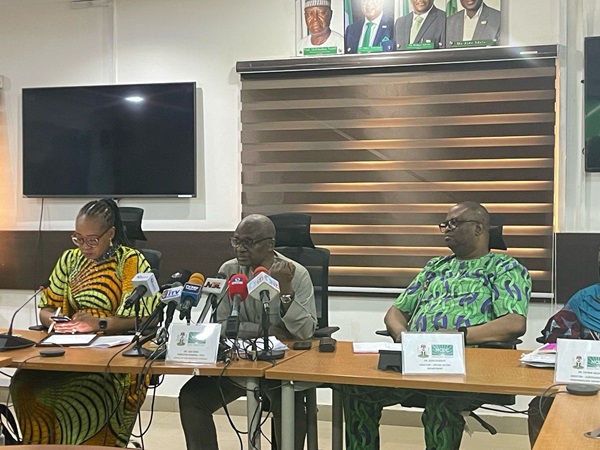
The Nigeria Centre for Disease Control and Prevention (NCDC) has raised alarm over a significant surge in cholera infections, especially in 30 local government areas across nine states, prompting the issuance of a public health advisory.
Alongside cholera, the centre also provided updates on the status of Lassa fever, Mpox and cerebrospinal meningitis (CSM) outbreaks.
Speaking during a media briefing in Abuja, the director-general of NCDC, Dr Jide Idris expressed deep concern as the rainy season ushers in increased vulnerability to cholera. He disclosed that as of April 28, 2025, a total of 1,141 suspected cases and 30 deaths had been reported across several states, with Bayelsa, Lagos, Abia and Zamfara among the hardest hit. He attributed the rising cases to poor sanitation, limited access to clean water and the widespread practice of open defecation, calling it a serious public health risk.
Idris noted that the centre is working closely with state governments, the Federal Ministry of Water Resources, and development partners to strengthen surveillance, improve access to oral rehydration therapy and promote hygiene education at the grassroots level. He emphasised that cholera is highly preventable, but collective action is essential to halt its spread.
On Lassa fever, Idris confirmed a decline in weekly case numbers, but warned against complacency. He explained that the virus remains active, particularly in Edo, Ondo and Bauchi states, which are endemic areas. The continued presence of the virus in rodent populations means the risk of resurgence remains high.
With regards to Mpox, Idris reported recent cases in Lagos, Rivers and the Federal Capital Territory. Although no deaths have occurred in the past month, he stressed that the virus is still being transmitted through close contact and personal exposure. He urged vigilance, especially in high-density areas.
Turning to cerebrospinal meningitis, he said that confirmed outbreaks have been reported in Sokoto, Kebbi and Yobe states, primarily affecting children and young adults. To combat the spread, targeted vaccination campaigns have been launched with the support of the National Primary Health Care Development Agency (NPHCDA) and Gavi.
Idris also highlighted the importance of antibiotic stewardship in outbreak response. He warned that indiscriminate use of antimicrobials for illnesses such as cholera and Lassa fever could escalate the already critical problem of antimicrobial resistance (AMR), which he described as a silent pandemic. He stressed that not all illnesses require antibiotics, and urged health workers to follow evidence-based treatment protocols.
He concluded by urging Nigerians to practise preventive health behaviours, including regular hand washing, proper waste disposal, and seeking medical care at the earliest signs of illness. He called on the media, civil society and community leaders to support public sensitisation, noting that safeguarding public health is a shared responsibility.

